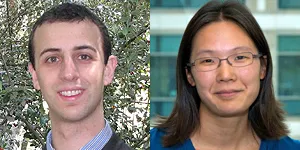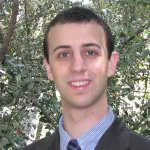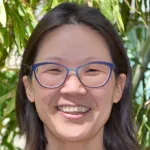
Inside Stanford Medicine - October 3, 2012
The National Institutes of Health has recently recognized two budding Stanford scientists as worthy of skipping a grade, so to speak. An often-lengthy stint as a postdoctoral scholar is usually considered a prerequisite for becoming an independent investigator, but for the second year in a row, the NIH has recognized a small number of outstanding scientists who deserve to break the mold.
Adam de la Zerda, PhD, assistant professor of structural biology, and Ellen Yeh, MD, PhD, acting assistant professor of pathology, have each received an NIH Director's Early Independence Award, with grants of $1.25 million each to support the first five years of their research as independent investigators.
"The NIH is identifying those exceptional students that have the intellect, innovation, drive and maturity to flourish independently without the need for traditional post-doctoral training," said NIH director Francis Collins, MD, PhD. A total of $25.9 million is being given to 14 junior scientists, including de la Zerda and Yeh.
De la Zerda earned his PhD in electrical engineering from Stanford in 2011, where he pioneered a novel photoacoustic molecular imaging technique. For his independent research, he will continue to develop novel molecular imaging techniques that will allow highly sensitive visualization of biomolecules in living subjects. "These enhanced visualization techniques, which are facilitated by nanoparticles that target specific biomolecules, will allow us to look at tumors from an entirely different angle," he said. "For the first time, we will be able to watch cells in a living tumor signaling each other in real time and gain insights regarding their behavior at the molecular level."
Yeh will be using her award to further define the novel eukaryotic biology of the apicoplast, which is an organelle that plays a vital role in the survival of malaria-causing parasites such as P. falciparum. As a visiting scholar in the lab of Joe Derisi, PhD, professor of biochemistry and of biophysics at UCSF, Yeh elucidated metabolic pathways that make the apicoplast an essential component of the malaria life cycle.
Now, in her ongoing independent investigations, she will continue to dissect the biology of the apicoplast with the goal of discovering effective targets against P. falciparum and other apicoplast-bearing parasites.


